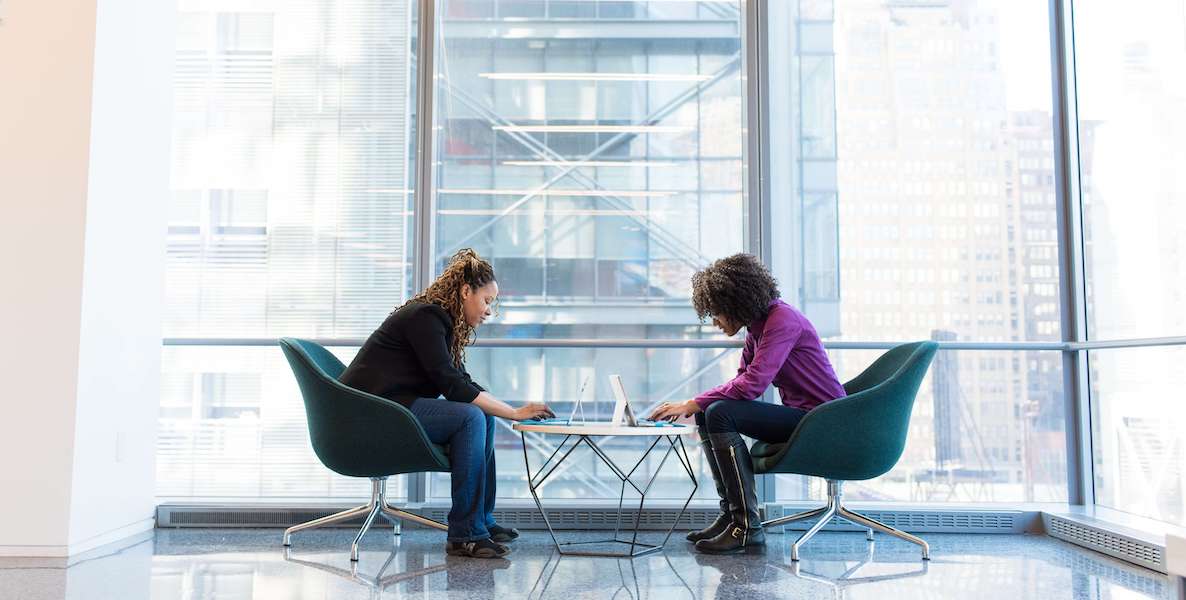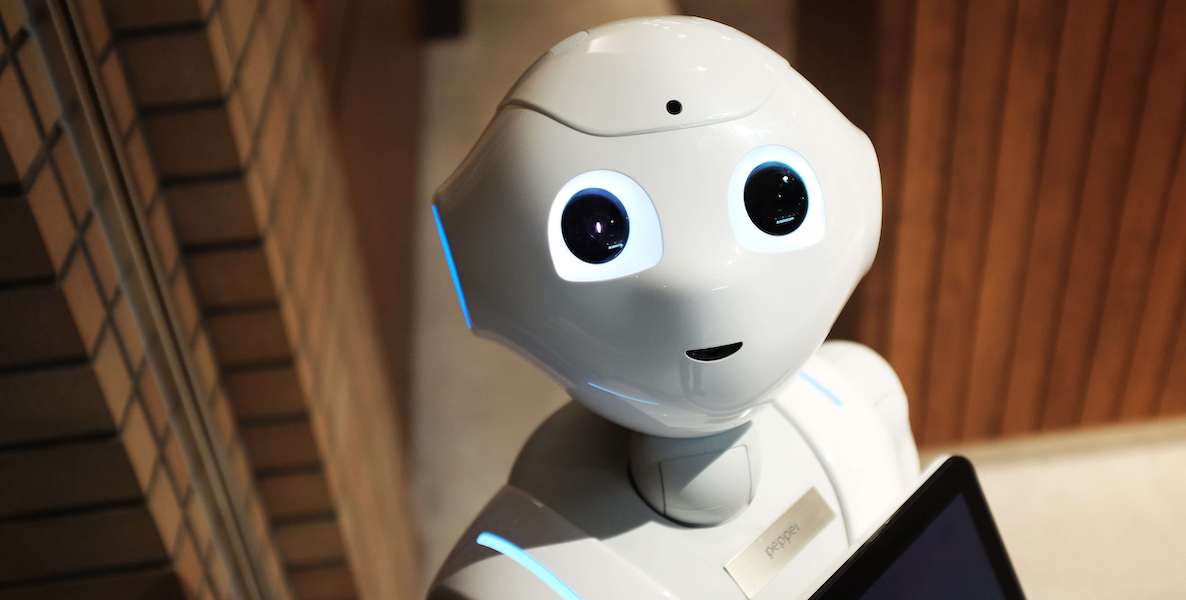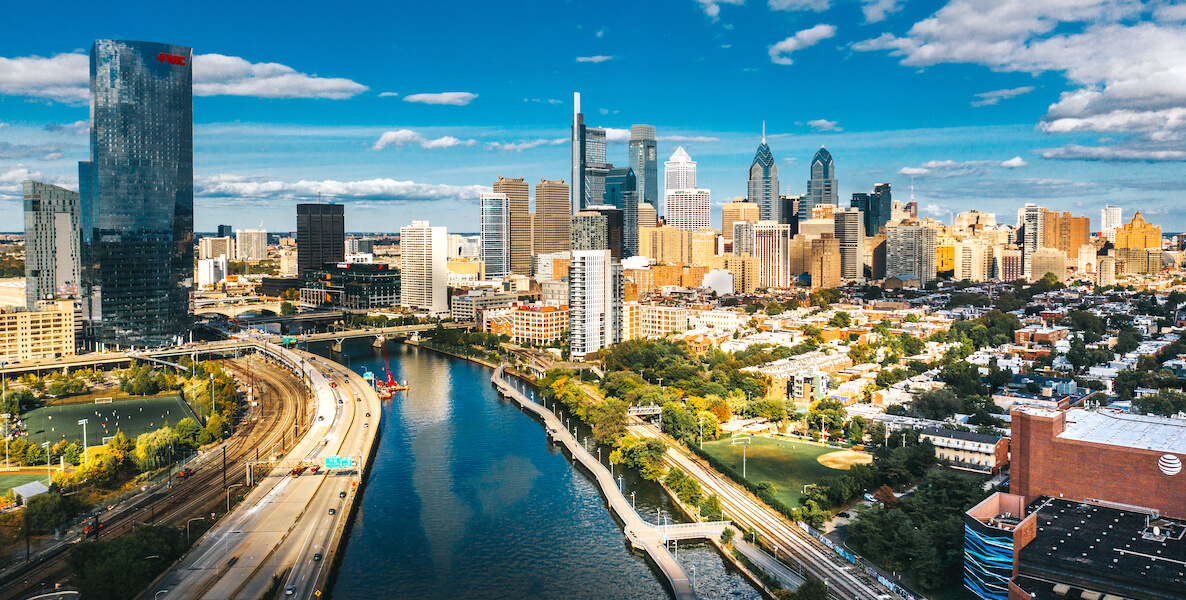Quarantine times are all about family, including extended family. My mom and dad are retired. Dad put himself through college with the G.I. bill and help from PECO. Mom completed nursing school, then had five children in seven years while at home. Later, she was a nurse full-time.
Of my five siblings and spouses, we work in education, health care and sales. My sisters risk the most virus exposure. One is a nurse practitioner and two are teachers.
All in all, my family is very fortunate. Yet, the usual Thanksgiving is cancelled this year. One sibling thinks the virus is a hoax but another two caught it. We’ve agreed to disagree on protocols for visiting Mom and Dad. But what does this even have to do with future-proofing work?
Tackling Existential Risk, Stress and Fear
While we are all managing persistent and higher levels of risk, stress and fear, most of my family is okay. Our jobs will not be permanently lost. We are college-educated and have generations of incremental wealth-building to rely upon during tough times.
This is not the case for millions of U.S. workers and families. Many workers are in a triple bind with no cushion: more virus exposure, more likely to lose jobs and increased risk of job loss being permanent.
![]() Last week, the Federal Reserve Bank of Philadelphia, as a part of their Research for Equity in Recovery series, released a discussion paper tracking early trends, “Forced Automation by COVID-19?” by Lei Ding and Juleith Saenz Molina. Also presenting his research entitled “The nature of work after the COVID crisis: Too few low wage jobs” was David Autor, professor and co-chair of the MIT Task Force on the Work of the Future.
Last week, the Federal Reserve Bank of Philadelphia, as a part of their Research for Equity in Recovery series, released a discussion paper tracking early trends, “Forced Automation by COVID-19?” by Lei Ding and Juleith Saenz Molina. Also presenting his research entitled “The nature of work after the COVID crisis: Too few low wage jobs” was David Autor, professor and co-chair of the MIT Task Force on the Work of the Future.
The virtual event was co-hosted by the Penn Institute for Urban Research and the Upjohn Institute. I had the pleasure of also presenting on the panel as the practitioner with suggestions for future-proofing.
Ding and Autor did not have good news. Service workers (more likely to be Black and brown) who support professionals are more likely to permanently lose jobs. Ding showed evidence of this already: Black workers in jobs at high risk of automation are not recovering jobs at the same rates as other groups.
Future-proofing must be embedded into the strategies for a racially equitable recovery and, as many have said, unprecedented levels of collaboration is needed to meet the moment. It is a great thing to see public-private partnerships forming in reimagined ways. Anchor institutions are really leaning in and are so important to the work ahead.
However, we need to accept five realities before relying solely on the traditional sources of business and civic leadership.
- Large institutions generally do not have internal cultures of innovation and creativity.
- Public trust in many institutions has been steadily eroding.
- Rapid technological change is disrupting institutional business models and operations as we speak.
- They are not diverse and inclusive enough along racial, gender, and especially, class lines. Looking at the data and trends illuminated by Ding and Autor, I anticipate continued unrest driven by socio-economic fear and anger. Trust and credibility will be hard for a foundation, elite university or highly profitable corporation to establish with people who have watched opportunity erode for decades.
- Institutions prefer near-sure bets but prediction is becoming impossible. The iPhone is 12 years old and Twitter is 13 years old. Few predicted their impact. Scenario-planning will not be adequate if led only by elites holding hierarchy dear.
We must hear from people closer to real risks, existential fears and sustained stress. Decision-makers and civic leaders can learn from those who are unlike them or anyone they know.
There are promising future-proofing efforts underway already nationally and locally.
Let’s coordinate the brain power in this region in new ways. Right now, myself and many others are seeking fellow founders of the Future Works Alliance, modeled after efforts in Germany, Canada and Japan. (It was initially a cross-departmental project inside of the City government, but it was stalled by the pandemic.)![]()
When we launch this equitable civic dialogue focused on technological change, it will indicate to the global marketplace that our region is embracing the future, not legislating to try and stop it. By supporting and participating in the Future Works Alliance, leaders will demonstrate corporate social responsibility and have opportunities for ongoing strategic and inclusive partnerships.
The Four Pillars
The Future Works Alliance will tackle problems rapidly and consider future-proofing strategies in four pillars:
Innovation: We will need to capture real opportunities ahead so innovation careers will grow here, not just in superstar cities. We need to crowd-source solutions. Some queries to solve:
- How can more science & tech Research and Development funds come here and equitably break through to the market easily, to both set up and grow here?
- Where is the tech-aligned regional economic development plan and is it accessible to workers and open for comment?
- How about a Citizen’s Digital Strategy to address surveillance, privacy, data governance and digital divide issues? Kudos to Comcast, foundations and the City for good crisis management. Now, how can we expand the vision for digital literacy and inclusion as 5G speed makes its ascent?
Education: We need policy and culture change as disruption is imminent.
- How can every child start kindergarten ready to learn and keep learning to gain skills for a decent life? College is not for everyone and many middle-skills careers are in high demand with silver tsunamis of retirees on the horizon.
- How can uniquely human skills like stress management, mental resilience, creativity, curiosity and empathy and tech skills be at the core of schools? We only measure the bare foundational skills. We need to focus on relevant skills.
- Skills, by the way, are not credentials. Credentials, especially elite ones, are sometimes evidence of skills. However, assessments can determine skills in hiring processes. How will schools evolve?
Land Use: Technology obviously affects people as they live, work and move.
- How should we adjust as e-commerce grows and delivers by drone? What becomes of malls, main streets and commercial corridors?
- How can urban service workers get jobs if knowledge workers are working in the burbs? And, does Philadelphia’s tax structure look through the the eyes of companies revising “work from anywhere” policies?
- Parks are key for livability, mental health and climate resilience. The stress of constant churn in the labor market will be real. Neighborhoods need all the calm we can deliver.
Talent: Not everyone will be able to compete in the labor market of the future. We will need a separate strategy for disabled, older and traumatized working-age people. That aside for now, how can we best match future-proof careers to talented, motivated workers? How do we best attract, grow, keep and support our talented people?
- Every company is a tech company now or they will not exist for long. A tech talent system is overdue. It requires business-led public-private partnerships.
- The Care Economy is a future-proof sector. How can we build the escalators so talented, under-privileged people can pivot from Macy’s into a career as a nurse, teacher or social worker? Policy is not in place to support such career moves.
- How can we link smaller businesses with community colleges? Ties between industry and higher education not only keep curriculum fresh, but are tools for talent retention. Drexel is a national leader here and can show the way.
- More workers will be entrepreneurs and gig workers. How do we create a new safety net despite no formal employer-employee relationship?
Since real, lasting change requires pressure and power, politics are hard to keep out. But this needs to be a non-partisan and apolitical place while welcoming government officials and public dollars.
We can create the region’s next chapter. If we share expertise, shape consensus and inclusively determine the best next steps for the future economy, we will have a thriving and socially stable region.
If we do too little to ensure authentic opportunities for more people to realize their potential, we will see more poverty, diseases of despair, violence, economic injustice and yes, more social and civil unrest for the next decade or more. The challenges ahead will require intentional collaboration with all, up and down the socio-economic ladder.
![]() To date, the committed founders of the Future Works Alliance are companies, community-based leaders, planners, tech experts, entrepreneurs, nonprofits serving the public, government, academia, foundations and, soon, workers too. Tech Impact, a national nonprofit that uses technology to better serve the world, has graciously agreed to also be a fiscal sponsor. The door is now open for early adopter founders to be part of a new way.
To date, the committed founders of the Future Works Alliance are companies, community-based leaders, planners, tech experts, entrepreneurs, nonprofits serving the public, government, academia, foundations and, soon, workers too. Tech Impact, a national nonprofit that uses technology to better serve the world, has graciously agreed to also be a fiscal sponsor. The door is now open for early adopter founders to be part of a new way.
Imagine all regional businesses employing the most equitable talent and HR practices. Imagine every major employer in the region actively working to take current employees who are at risk of losing their jobs from automation into training programs so they can access hard to fill roles the company knows it will need soon. Imagine philanthropy honoring the wisdom of the community and taking risks on innovative solutions.
This is hard work and requires years of committed coalitions with voices from all walks of life in authentic dialogue. Nevertheless, the future is now and we should all get to work.
Anne Gemmell is the founder of Future Works Strategy, a consulting business focused on future-proofing. She is the former director of Special Initiatives in the City of Philadelphia Office of Workforce Development, where she was responsible for creating strategic plans focusing on emerging technologies, their effects on talent pipelines and actions for “future-proofing” our local economy. A longtime policy strategist, she also worked with the Kenney administration on the equitable design, advocacy and successful funding of the PHL PreK program.
Header photo by Christina @ wocintechchat.com / Unsplash






